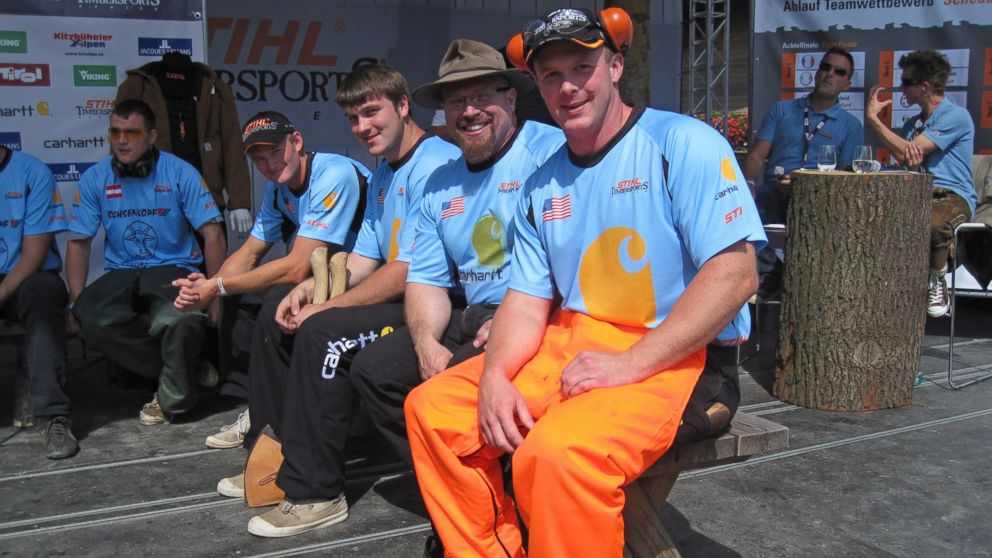Worst Job? This Lumberjack Takes a Chainsaw to Survey
I love the smell of sap in the morning, says happy logger.

April 16, 2014 -- Contrary to the finding of a recent survey, "lumberjack" is not the worst job in the U.S.--or so says one happy logger.
"I love the smell of sap," says Branden Sirguy, 39. "There's nothing like it when I step out of my pickup in the morning and smell the smell of fresh cut trees."
Not only is Sirguy a forester by training and by choice, he competes annually in logging events for fun. ABC News contacted him to get his take on a report released yesterday by CareerCast.com that rated being a lumberjack as the absolutely worst job of any in North America. CareerCast rated it dead last in desirability out of 200 different vocations.
The job's median annual salary, according to Bureau of Labor Statistics data, is $24,340; its projected growth between now and 2022 is 4 percent; it exposes workers to the dangers of heavy machinery; and it compels them to work in sometimes remote locations.
Sirguy says all of that may be true on a national basis, but that conditions are better where he works in the Pacific Northwest. He is a forester for Merrill & Ring Forest Products in Port Angeles, Washington. In Washington, he says, timber ranks as the #2 industry after aerospace, in terms of employment and revenue. "Here in the Northwest," he says, "the starting salary for a logger doing manual labor would be more in the range of $35,000."
He graduated from the University of Washington in 1998 with a degree in forestry resources management, and for several years has competed in the STIHL TimberSports Series--a kind of Olympics for woodsmen. In 2012 he finished 4th among all U.S. competitors in the Series, competing in six events that included sawing and chopping. In 2010 and 2011, he placed so highly that he went on to represent the U.S. in Europe in a similar international competition.
Though in his professional life, he says, "I sometimes fell a tree," he more often manages other loggers. The industry prefers the term logger, he says, to lumberjack, which is considered out of date.
Asked what he would tell a 16-year-old kid thinking of becoming a logger, Sirguy says he would not hesitate to recommend the job. It's true, he says, that there are risks and inconvenience. Historically, he says, it took a "hardened individual" to work in the woods. But felling tress he calls a vital occupation, in so much as it provides the basic stuff not just of construction but (via wood's byproducts) clothing, food and even makeup.
"Forests give us some of all those things," he says. Logging's future prospects he calls bright. "There's a whole generational shift taking place. A lot of people in the industry are within 10 years of retirement, and behind that is a big void. There's a lot of employment opportunity for a young person starting out."
The work "connects you with nature," he says. "It makes you feel alive."




